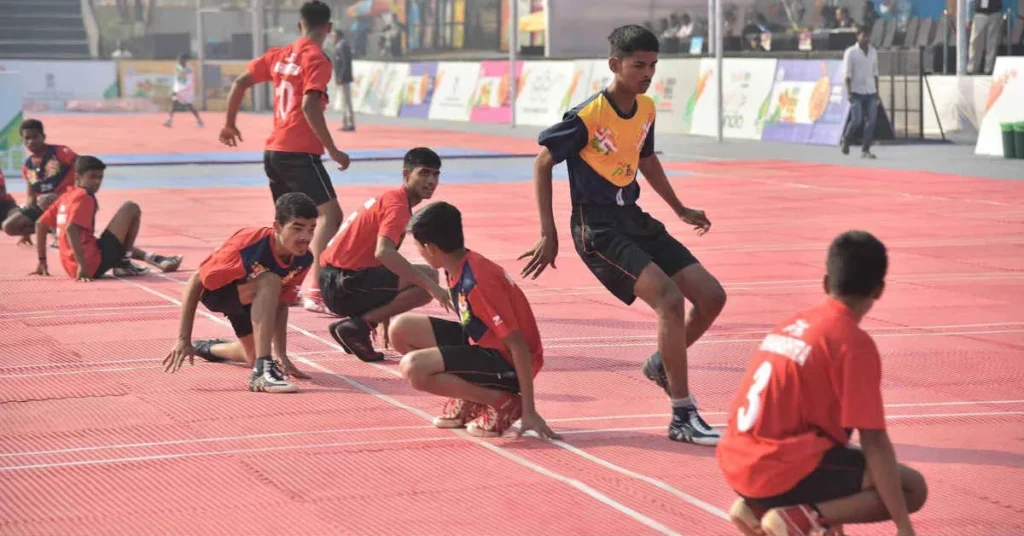Introduction
Kho-Kho in the 2036 Olympics is no longer just a distant dream but a growing movement gaining momentum. As this traditional Indian sport garners international recognition, India is making significant strides to secure its place on the global stage. The government, under the leadership of Sports Minister Mansukh Mandaviya, is actively working to elevate Kho-Kho’s status by pushing for its inclusion in prestigious events like the Asian Games and the Olympics. With dedicated efforts to promote and globalize indigenous sports, India is determined to bring it to the world’s biggest sporting arena—the 2036 Olympics.
Why Kho-Kho Matters in 2024 and Beyond
It is a high-energy tag sport rooted in India’s rich sporting culture, has long been a symbol of agility, teamwork, and strategy. While it has seen regional popularity, India aims to propel it onto a global platform. Key reasons for its growing significance include:
- Cultural Heritage: An ancient Indian sport that showcases the country’s sporting legacy.
- Growing International Appeal: Successful events like the Kho-Kho World Cup have drawn global attention.
- Government Support: Dedicated efforts by the Sports Ministry and Kho-Kho Federation of India.

India’s Roadmap to the 2036 Olympics
To ensure its inclusion in the Olympics, a well-defined strategy is in place. Here’s how India is working toward this goal:
1. Hosting the 2036 Olympics
India has officially submitted a ‘Letter of Intent’ to the International Olympic Committee (IOC), marking the first step toward hosting the 2036 Olympics. If successful, this will significantly boost Kho-Kho’s chances of being recognized as an Olympic sport.
2. Securing Asian Games Recognition
Kho-Kho’s inclusion in the Asian Games is crucial for its Olympic journey. Minister Mandaviya emphasized the need for collaborative efforts between players, coaches, and sports federations to meet international standards and secure a spot in the Asian Games.
3. Promoting International Competitions
India has already made strides in promoting Kho-Kho internationally. The successful organization of the Kho-Kho World Cup, where both the Indian men’s and women’s teams emerged victorious against Nepal, was a significant milestone. Events like these help showcase its competitiveness and potential to become a mainstream global sport.
Key Challenges and the Way Forward
Despite the promising developments, there are challenges that need to be addressed:
- Global Recognition: More countries need to adopt and play Kho-Kho at a competitive level.
- Standardization of Rules: Aligning with international sports regulations is crucial.
- Infrastructure Development: Expanding high-quality training facilities worldwide.
To overcome these challenges, continuous efforts from the Kho-Kho Federation of India, government bodies, and international sports organizations are essential.
Conclusion
India’s vision to take it to the 2036 Olympics is an ambitious yet achievable goal. With strong government backing, strategic international exposure, and dedicated efforts from players and sports federations, Kho-Kho is poised to become a globally recognized sport.
As the journey unfolds, the world will be watching how India successfully brings one of its most cherished traditional sports to the grandest stage of all—the Olympics.


